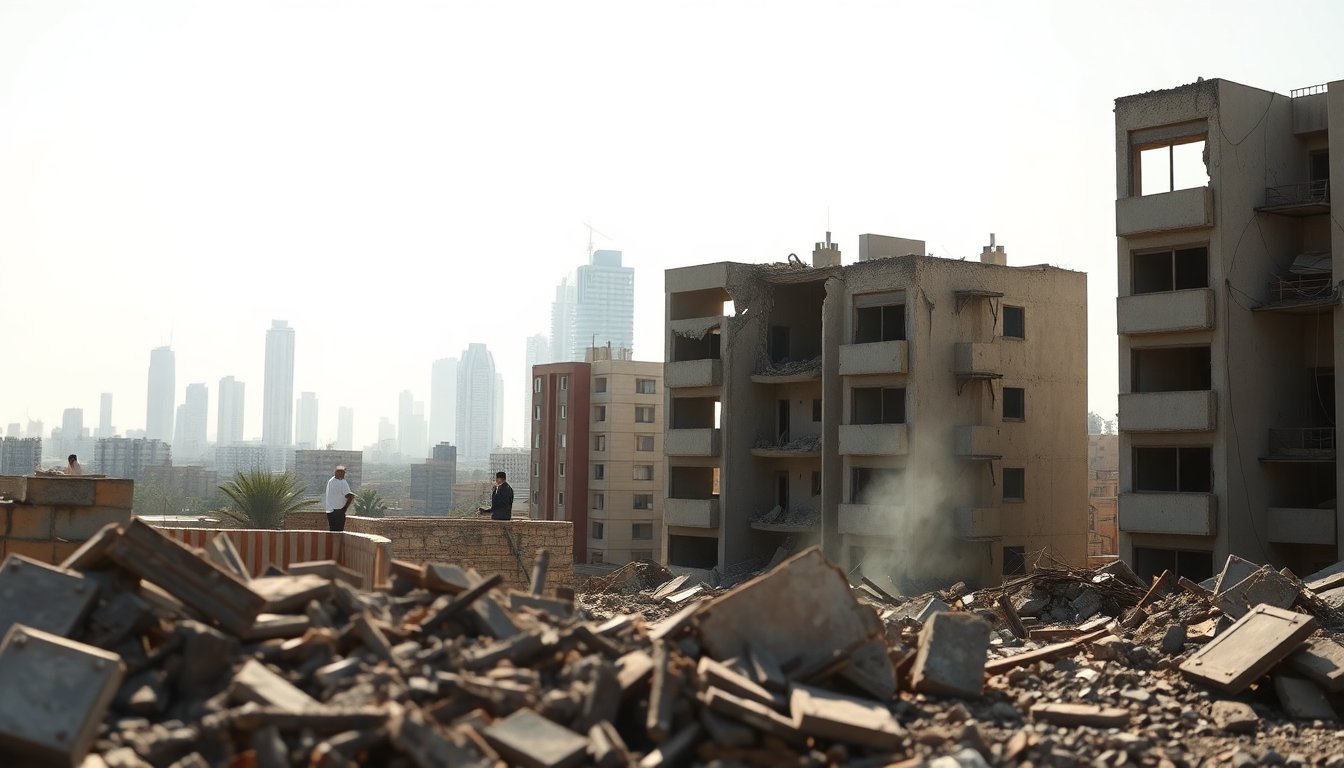Table of Contents
The recent Israeli military strike on a residential building in Doha, reportedly housing Hamas officials, has ignited widespread outrage and condemnation from Qatar. The country’s Ministry of Foreign Affairs has characterized this action as a flagrant violation of international law, emphasizing the seriousness of the situation and its implications for regional stability.
Qatar’s Response to Israeli Actions
In a statement, spokesperson Majed al-Ansari expressed Qatar’s strong disapproval, labeling the attack a cowardly Israeli assault that threatens both security and sovereignty. Qatar has played a crucial role as a mediator in the ongoing ceasefire negotiations between Israel and Hamas. This unprecedented act of aggression has raised significant concerns regarding diplomatic relations and stability in the region.
Al-Ansari noted that investigations are underway at the highest levels of the Qatari government, with more information expected to emerge soon. This attack marks a significant escalation, as it is the first of its kind on Qatari soil, complicating the already delicate geopolitical landscape.
Implications of the Attack
The Israeli military confirmed the strike on Hamas leaders in Doha, coinciding with critical negotiations for a ceasefire in Gaza. The timing of the attack raises questions about Israel’s intentions and the potential ramifications for future discussions. The location of the strike, near residential neighborhoods, adds another layer of complexity to the situation.
Local correspondents have highlighted the sensitive nature of the site, noting that the attack occurred in a densely populated area, which raises humanitarian concerns. Suhaib Al-Assa from Al Jazeera pointed out that security measures surrounding such operations are inherently complicated due to the proximity to civilian habitation.
Broader Context of the Conflict
The attack in Doha is not an isolated incident but part of a broader pattern of military actions by Israel across the region, including ongoing bombardments in Gaza, Lebanon, and the occupied territories. As the conflict escalates, rights groups have increasingly characterized Israel’s actions as genocidal, reflecting a growing international outcry against the humanitarian crisis unfolding in Gaza.
Israel’s military has faced considerable scrutiny, with the International Criminal Court issuing an arrest warrant for Prime Minister Benjamin Netanyahu amid allegations of war crimes. The targeting of Hamas leaders in a third country echoes previous operations, such as the assassination of Hamas political leader Ismail Haniyeh in Tehran, illustrating Israel’s willingness to extend its military reach beyond its borders.
As the situation evolves, the implications for regional security and international law will be closely monitored. Qatar’s condemnation of the attack underscores the fragility of diplomatic relations in the Middle East and the urgent need for dialogue to prevent further escalation.


